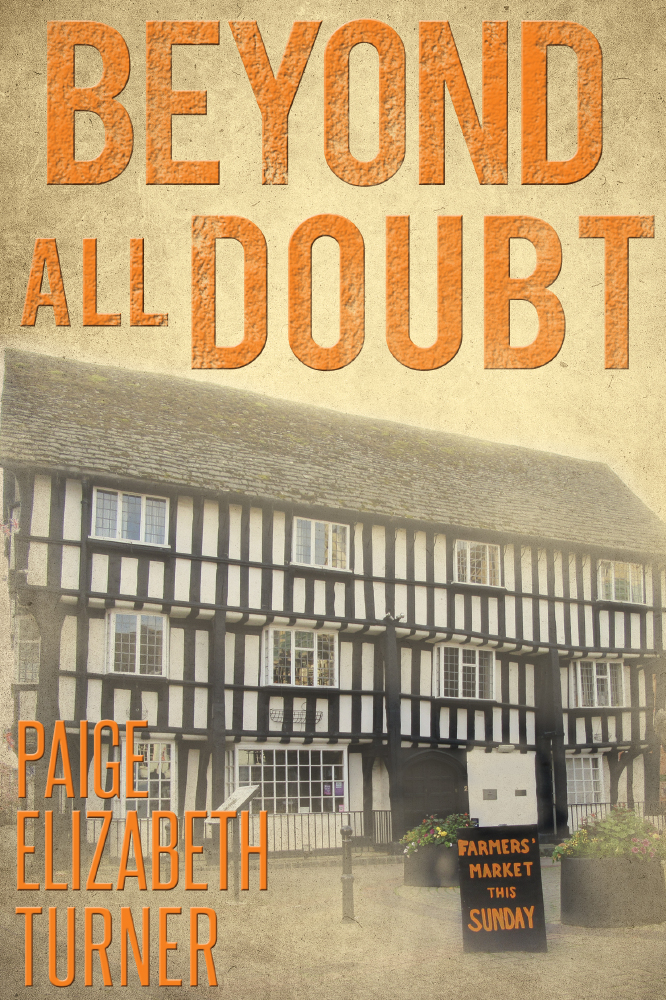I preface this article with a statement: There is no 'typical' day in a writer's life. Public consensus might deduce that we sit in front of a computer for eight hours, tap out a few paragraphs, run a hand of Solitaire, etch out another 100 words, glance at Facebook, tweet a couple of friends, edit aforementioned 100 words, and then adjourn for morning tea. Sorry to disappoint. Such is far from reality.

Beyond All Doubt
In my view, there are two classes of writer: the career writer and the hobby writer. Varying degrees of combinations morph between the two, with both groups fiercely dedicated to their task - whether it be to achieve a 2,000 word per day novel objective, or to write a 14-line sonnet (I concede the tautology) for one's own poetry collection hosted on a WordPress blog.
As a novelist*, no two days are the same. Many will attest that the best-made plans are often hijacked by unexpected phone calls or emails. I work to a rigid structure. That, unfortunately, introduces added stresses when those best-made plans are assassinated.
*(For authenticity, I should state 'aspiring novelist', because I believe we are all 'aspiring' until accepted and sought by general readership).
My weekdays start at 5.15 am. After a quick snack, I attend a local gym where I pace through 90-minutes of weight training and cardiovascular exercise. I keenly profess the merits of maintaining a health and fitness regime - vital for sedentary wordsmiths who are seated for much of the day.
On returning home, I fumble through an hour's correspondence. Emails demand attention; received from publishers, competition organisers, local writers' groups, and most recently, the Evesham 'Festival of Words' committee with whom I am negotiating a presentation for the July 2017 event.
From 9.00 a.m. until midday, I work feverishly on novel writing and/or editing. My present projects entail writing The Loft, the third novel in my 'Watts Happening? Investigations' series, in tandem with proof reading Whisper of Death, due for release by Matador on 28 June 2017. On this point, a question often asked of writers is: Do you handwrite the first draft, or type straight into a computer? I first draft into a spiral-bound A4 note book. Much of a draft is non-sequential because random thoughts trespass upon us at the most inopportune times. My notebook is therefore graffitied with arrows, inserts in parenthesis, and cross-references to other pages. On completion of the draft, I transfer it to a Word® document. (Some writers work with proprietary programs such as Scrivener, and might transfer text to that program or draft direct.) On entering into Word®, I assemble chapters in order whilst simultaneously performing a brief edit. In this rough form, revision and editing is ongoing until I print out an A4 'hard copy' for the final edit.
So, back to my day, a light lunch prepares me for another two hours of writing / editing after which I branch into updating an accounts spreadsheet. Expenses are minimal and infrequent, but bookwork is one facet of self-employment that must not be allowed to lag. I also communicate with writers' forums for a two-fold purpose: I enjoy the camaraderie of like-minded enthusiasts, and I believe in the importance of self-promotion. The self-promotion ideal does not focus solely on flogging merchandise as would an aggressive multi-level marketer. Perhaps it's best explained by viewing a book as a product - which, of course, it is. Like any product, it must be effectively marketed, not to the point of overkill, but to a general presence in the public arena. My objectives though, are not all one-sided. I willingly assist writers' queries and offer help and guidance to those who ask. I am a staunch believer in donating time and knowledge to benefit others, and thereby keep buoyant our thriving art.
Other important tasks to devour the working week include marketing my range of Romance and Valentine's cards (view on www.paigeelizabethturner.co.uk) and attending meetings with local writer's groups.
It is not unusual for work to flow into the weekend. Remember: our work is pleasure, so it is no inconvenience (to me at least) to spend 'free' time pursuing my objectives. I tend to funnel informal work into weekends. For instance, I recently spent two Saturday mornings at Evesham Library promoting Beyond all Doubt by way of author talks and book signings. I believe that our availability to the public is an important facet of our vocation.
Readers often ask about the 'story' behind a book. A common consensus spouts that a book is a reflection of the author's life. Fair enough assumption - if we're writing an autobiography. In fiction, though, we might uncannily transfer some of our traits and idiosyncrasies to our characters. But taking in the whole picture, a book is merely a 300-page lie. True! We conjure thoughts and imaginations and sandwich them as fact between two covers. What career or hobby could compete with that? Very few, but a political speech writer does come to mind.

